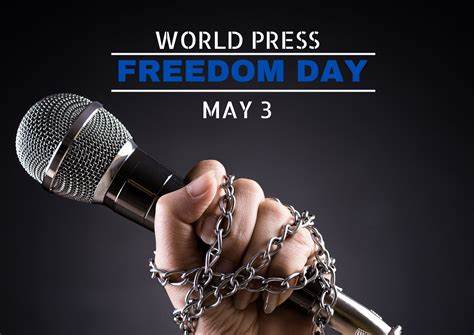The World Press Freedom Day was proclaimed by the United Nations General Assembly in December 1993, following the recommendation of UNESCO’s General Conference, to remind governments of the need to respect their commitment to press freedom around the world.
Since then, every 3rd of May has been designated to commemorate the Day, which serves as an opportunity to celebrate the fundamental principles of press freedom; assess the state of press freedom in the world; defend the media from attacks on their independence, and pay tribute to journalists who have lost their lives in the line of duty.
The proliferation of independent media in many countries and the rise of digital technologies have enabled the free flow of information. However, media freedom, safety of journalists, and freedom of expression are increasingly under attack globally.
The state of press freedom in many parts of the world including Nigeria is not palatable. Journalists have had to contend with a lot of harassment and intimidation while discharging their duties.
Journalists like Baba Wame, Rodrigue Tongue, and Félix Ebolé Bola were threatened with prison terms after refusing to disclose their sources for a story on allegations of collaboration between security forces and an armed group in the Central African Republic.
Nigeria is not left out as several journalists have also been harassed, intimidated, and in some cases killed in the course of carrying out their duty. For instance, Voice of Nigeria’s correspondent in Zamfara, Hamisu Danjibga was murdered, and Haruna-Magami, a popular radio host in the same Zamfara State, was abducted by unknown gunmen for attempting to uncover a corruption case. A reporter in Nigeria’s Punch Newspapers in Ogun State, South West Nigeria, Dauda Olatunji, and two other journalists was harassed and beaten by unionists enforcing a strike in Ogun State.
Zakariya Isa, a reporter with Nigerian Television Authority in Borno State, was killed by Boko Haram insurgents over an allegation of spying on them for the Nigerian security authorities, an Editor of First News Online platform, Mr. Segun Olatunji was also abducted from his home in Lagos, South West Nigeria by suspected men of one of the country’s security agencies on the 15th of March, 2024. It took the intervention of professional bodies like the Nigeria Guild of Editors, the Nigerian Union of Journalists, and others before he was released.
This high level of attacks on journalists led to Nigeria being ranked 129 of 180 countries on the World Press Freedom Index in 2022.
The increased concentration of the media industry into the hands of a few, the collapse of scores of independent news organizations, and increased national laws and regulations that stifle journalists further threaten freedom of expression in Nigeria.
Journalists encounter significant challenges in seeking and disseminating information on contemporary issues, such as climate migration, extractive industries, illegal mining, pollution, animal trafficking, deforestation, and climate change. Ensuring the visibility of these issues is crucial for promoting peace and democratic values worldwide.
Therefore, the theme of this year’s Press Freedom Day “A Press for the Planet: Journalism in the Face of the Environmental Crisis” highlights the importance of journalism and freedom of expression in creating awareness of all aspects of the global environmental crisis and its consequences to societal growth and development.
The day helps in reiterating that the public must always have access to all kinds of information and the government should support it in creating a safe space for journalists to do their jobs.
Globally, in any democratic government, the press as the fourth estate of the realm has the mandatory responsibility to hold the other arms of government accountable on behalf of the people. Whenever this responsibility is eroded that democracy has failed or holds the tendency to fail the people they are elected to serve in any country.
The Nigerian government should enact laws that would safeguard the operations and the life of Journalists as a safe net to practice anywhere in the world.
Media owners must be professionals who understand the rudiments and the high risks of practitioners. They must ensure that Journalists are adequately insured and well remunerated.
When this is achieved in Nigeria, other African countries will likely emulate this venture.
The right to freedom of expression, enshrined in Article 19 of the Universal Declaration of Human Rights, is a prerequisite and a driver to the enjoyment of all other human rights.
The 2024 celebration is a global call to nations to ensure that laws and guidelines are strengthened to ensure that journalists are protected, devoid of intimidation and harassment to carry out their constitutional duties anywhere in the world.
As Nigeria enters the final decade to meet all countries’ ambitions for the Sustainable Development Goals, SDGs and to fulfill the commitments made by every Member State of the United Nations, World Press Freedom Day should serve as a reminder for the country to recognize the patriotism of journalists and accord them the desired support to duly practice as the fourth estate of the realm, for a vibrant and productive democracy.

